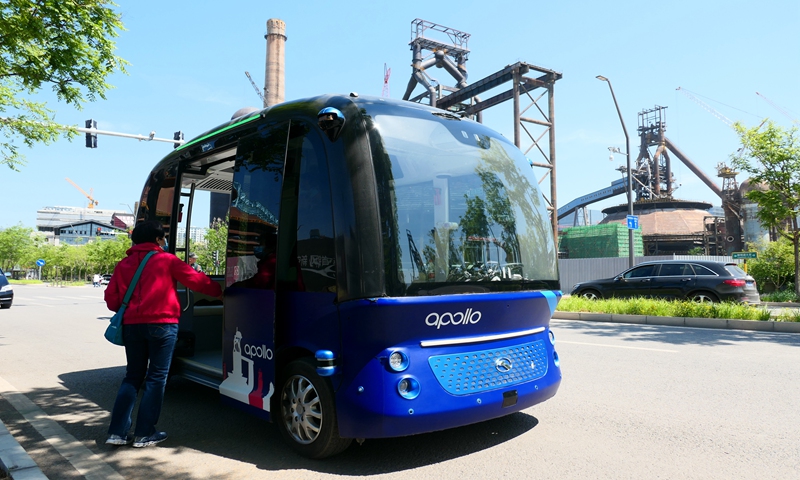
A resident gets on a Baidu Apollo minibus at the Shougang Park in Beijing on May 2, 2021. Photo: VCG
Baidu announced on Monday that it will begin public testing of its Apollo Go vehicle in Shanghai, marking the fifth city where passengers have the opportunity to test the robotaxi mobile platform.
The Shanghai operation will include 150 stations opened in phases throughout the city to provide users convenient access to residential, commercial areas, offices and public transportation.
The announcement comes on the heels of the expansion of Apollo Go to Tongzhou District in Beijing, where the service will enable residents and visitors of the suburb to experience travel in an autonomous vehicle. The first fleet of vehicles in Tongzhou will cover a total of 22 stations- with a total distance over 31 miles, allowing for more than 100 trips every day.
According to a recent IHS Markit report, the significant market potential for autonomous vehicles in the future will be pinned on business models such as robotaxis, which are estimated to account for more than 60 percent of China's future mobility sharing market by 2030, exceeding $201 billion.
IHS also estimates that this portion of the market will be dominated by two to three robotaxi service providers, with the leading provider occupying more than 40 percent of market share.
The autonomous driving industry in China has recently entered a new stage of development, which includes public trials for the implementation of large-scale applications.
As of the end of August 2021, Apollo L4 autonomous driving accumulated 8.7 million test miles. Following its launch in Shanghai, Baidu plans to bring Apollo Go services to 25 more cities over the next three years, making autonomous driving a reality for 3 million people in China.




